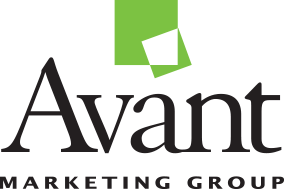In any typical year Farm Shows are a significant part of an agriculture marketer’s schedule. Shows provide an opportunity to have direct contact with both existing and potential customers, hear performance reviews, and gain significant input on new products or concepts.
Unfortunately, 2020 has not been a typical year. Most Farm Shows were cancelled or have adopted a virtual online format. Though virtual presentations do have some advantages, nothing replaces the smell of a good porkchop sandwich or the importance of face-to-face conversations with your customers.
COVID-19 has further emphasized the importance of market research to stay in touch with customers. Quantitative surveys and online focus groups can safely assist in gaining the market input normally achieved at Farm Shows. Research topics have included product performance, overall customer satisfaction, new product critiques and channel management issues.
“Farmers and ranchers have become more familiar with communications technologies, particularly web conferencing.” states Paul VandenElzen, Project Manager at the Avant Marketing Group. “This has resulted in increased participation opportunities for many growers and producers. Where once some were intimidated by the technology, they now feel that it is part of their lives based on daily usage.”
Avant Marketing has found an increase in demand for web-conferencing techniques including in-depth interviews as well as focus groups. Not only does technology provide a cost savings compared to face-to-face research, but it provides a platform with no geographic limitations normally found with physical focus groups or interviews. Participants from across the country can participate and share views with fellow farmers in providing marketing or product input.
Here are several points that will ensure success with virtual meeting research:
- Screen participants properly. Ensure that all participants have reasonable experience with either the brand or product category, meet certain demographic requirements, and can articulate their point-of-view in a discussion.
- Develop a discussion guide with focused objectives. Each session should have one primary purpose versus attempting to gain input on a number of issues.
- Engage an experienced moderator. Though focus group moderation may seem easy, an experienced moderator will remain objective and ensures participation from all members in the group. In addition, a good moderator knows areas of critical importance and has the ability to probe responses with questions that may not be included in the discussion guide. It is also important for the moderator to control the discussion time – keeping a solid tempo so that participants remain attentive. This includes starting and ending on time.
- Focus groups are great for discovery or affirmation, but should never be confused with quantitative research. One group’s opinion may represent the entire market, but that can only be confirmed through statistically-significant quantitative research.
- Make sure to send information on how to connect well in advance of the meeting. Participants should be allowed the option to test the meeting room on their own time and be asked to log-in to the meeting early to verify their video and audio connection.
For more information about web-based market research, visit Avant Marketing’s website at www.avantmarketing.com.
